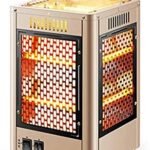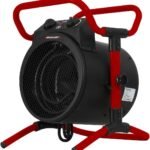In your quest to lower utility bills at your home, you might have stumbled across tankless water heaters as a potential solution. But do they actually offer lower operating costs? This article explores that question, shedding light on the comprehensive details of tankless water heaters – from their energy efficiency to long-term savings. You’ll gain vital insights to aid your decisions on household utilities, specifically focusing on whether or not tankless water heaters will save you money in the long run.
Understanding Tankless Water Heaters
When it comes to understanding water heaters, you might have heard of the fairly popular option known as tankless water heaters. But what exactly are these devices?
Definition of tankless water heaters
Tankless water heaters, also commonly referred to as on-demand water heaters, are devices that instantly heat water as it flows through the device, rather than retaining any water internally except for what is in the heat exchanger coil.
How tankless water heaters work
To delve into how these nifty devices work, we can make this quite simple. When you turn on the hot water tap, cold water travels through a pipe and into the unit where a gas burner or an electric element heats the water. Thus, tankless water heaters deliver a constant supply of hot water. You don’t need to wait for a storage tank to fill up with enough hot water, which is often the norm with traditional water heaters.
Types of tankless water heaters
There are primarily two types of tankless water heaters: Electric and Gas tankless water heaters. As the names suggest, electric versions use electric resistance coils while gas versions use a gas burner to heat water. The choice between gas and electric largely depends on the cost of utilities and the availability of a gas line in your area.
Comparing Initial Costs of Tankless & Traditional Water Heaters
Initial costs are an important part of the decision-making process for the purchase of any home appliance. Let’s peek into some considerations here.
Cost analysis of tankless water heaters
Tankless models are typically more expensive than traditional water heaters. For a high-efficiency model, you can expect to spend anywhere from $1,500 to $2,000 or more for the unit and installation.
Cost analysis of traditional water heaters
On the other hand, traditional water heaters are usually cheaper with unit and installation costs averaging between $500 and $1,500. That can be quite a difference, especially if you’re on a budget.
Differences in installation costs
The installation costs of these heaters can differ significantly. Tankless water heaters often involve complicated installations and can require larger gas lines, special venting or additional electric circuits that add to the upfront costs.
Energy Efficiency of Tankless Water Heaters
Now, let’s pivot and talk about energy efficiency, which is a primary consideration when purchasing a water heater.
Energy consumption of tankless heaters
Tankless water heaters generally use less energy as compared to traditional heaters. Since they heat water on demand, they don’t suffer from the standby heat losses associated with traditional water heaters.
Potential energy savings
In general, for households that use less than 41 gallons of hot water daily, tankless water heaters can be 24%–34% more energy efficient than traditional storage tank water heaters. Now that’s some potential energy savings!
Energy Star ratings of tankless heaters
These heaters typically have higher energy star ratings as compared to their traditional counterparts, indicating that they use less energy and are environmentally friendlier, which is always a good thing.
Operating Costs of Tankless Water Heaters
But what about the operating costs?
Cost of operating tankless heaters
While tankless water heaters are generally more energy-efficient, the operating costs depend on several factors, such as the unit’s energy efficiency, local utility costs, and the amount of hot water you use.
Factors that contribute to operating costs
Factors such as how much hot water you use, the unit’s Energy Factor (EF), and the fuel type can greatly impact the operating costs over time.
Ways to reduce operating costs
Choosing an energy-efficient model, reducing your hot water usage, or lowering the thermostat can help to cut down on the operating costs of tankless water heaters.
Maintenance Costs of Tankless Water Heaters
Let’s see what maintenance involves.
Steps for maintaining tankless heaters
For maintaining your tankless water heaters, it’s recommended to have them flushed and cleaned every year, especially in areas where there’s hard water.
Expected maintenance costs
The annual maintenance costs for these devices are estimated to be around $100-200, including a professional service.
Comparative analysis with traditional water heaters
When compared to traditional water heaters, the maintenance costs of tankless heaters can be higher, mainly due to the complicated nature of their installations and workings.
Lifespan and Replacement Costs of Tankless Water Heaters
One must also consider the lifespan and potential replacement costs.
Average lifespan of tankless heaters
Tankless heaters are usually more durable than their traditional counterparts. The average lifespan of good quality tankless water heaters is about 20 years, which is pretty impressive.
Costs involved in replacement
On the downside, if a tankless water heater fails, the costs for replacement are generally higher.
Comparison with lifespan and replacement costs of traditional heaters
Compared to the 10-15 year lifespan of a traditional water heater, a tankless variant certainly comes out on top. But as mentioned earlier, the cost of replacements can be higher for tankless models.
Real Life Experiences of Tankless Water Heater Users
Examining the experiences of real-life users can shed light on what to expect.
Discussion of user experiences
Users often cite the convenience, energy efficiency, and space-saving design of tankless water heaters as significant benefits. However, some users do point out the higher initial outlay and maintenance costs.
Cost experiences shared by users
Several users also express saving on their utility bills after switching to tankless models, supporting the claim of their energy efficiency.
User testimonies on operating costs
Reports vary, with some users confirming reduced operating costs while others don’t see a significant change. It largely seems to depend on individual usage patterns.
Possible Drawbacks of Tankless Water Heaters
Let’s now touch upon some possible drawbacks.
Potential issues with tankless heaters
Potential issues can include inconsistent water temperatures, a limited flow rate, and increased water and energy usage if multiple outlets demand hot water simultaneously.
Hidden costs
You can encounter hidden costs with increased maintenance expenses, need for higher gas capacity, and the requirement for venting.
Situation-specific disadvantages
There are situation-specific disadvantages too. For example, in cold-climate areas, the incoming water tends to be so cold that it requires more gas to heat it, which could actually raise your operating costs.
Savings Estimation for Tankless Water Heaters
How to estimate potential savings? Here’s how.
Calculation methods for potential savings
You can estimate potential savings by calculating the difference between the energy costs of operating a tankless water heater and a traditional one.
Assumptions made in savings calculation
Remember, such calculations typically assume that the usage patterns remain the same, which may not always be correct.
Results from different calculation methods
Various calculation methods will produce different results based on your specific circumstances, but in most scenarios tankless water heaters do seem to offer potential savings in the long run.
Conclusion: Do Tankless Water Heaters Have Lower Operating Costs?
Summary of findings
After examining every facet of the issue, we can say that tankless water heaters do offer several advantages, such as energy efficiency, longer lifespan and space-saving design. However, they also come with high initial and maintenance costs.
Contextual considerations
The question of whether tankless water heaters have lower operating costs can depend greatly on your individual situation. It includes the amount of hot water you consume, the energy prices in your area, and the model of the heater.
Final judgment
In conclusion, while tankless water heaters may have higher upfront costs, they may end up being more cost-effective in the long run due to their energy efficiency and longer lifespan. But remember, your mileage may vary based on your specific use and circumstances.









